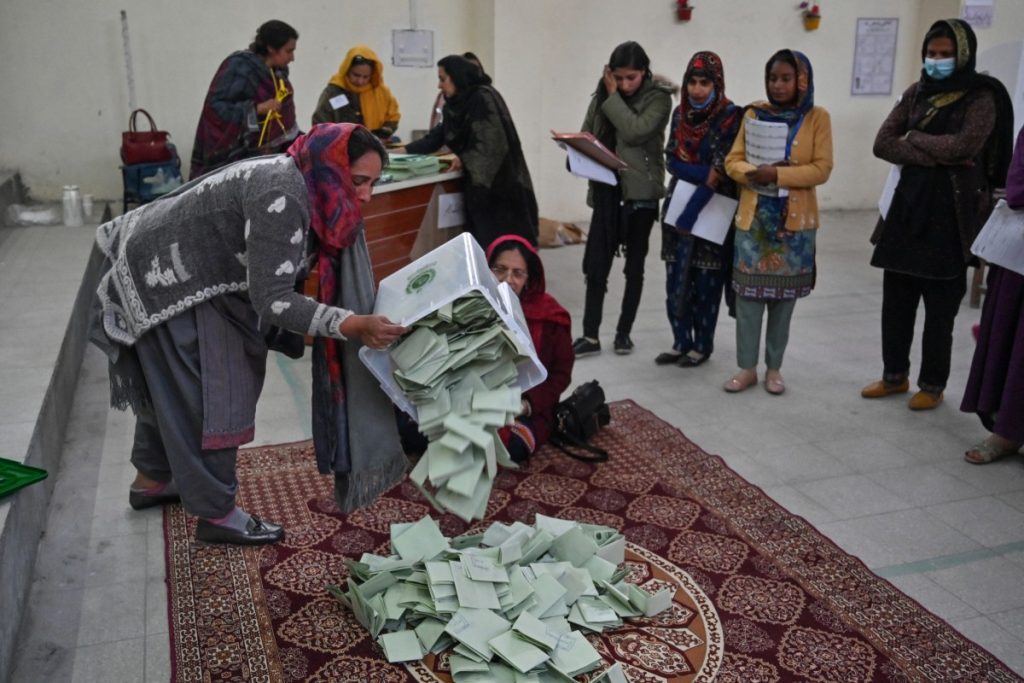As the nation’s most well-liked leader, Imran Khan, remained incarcerated, millions of Pakistanis cast ballots in an election tainted by claims of vote-rigging and the suspension of mobile phone service. As of Thursday, counting had begun.
After a lackluster campaign marred by the imprisonment of former prime minister Khan and the dismantling of his Pakistan Tehreek-e-Insaf (PTI) party by the military-led establishment, pollsters projected a low turnout from the nation’s 128 million registered voters.
Analysts predict that the Pakistan Muslim League-Nawaz (PML-N), whose 74-year-old founder Nawaz Sharif enjoys the support of the generals, would secure the most seats in Thursday’s election.
Concerns over the voting process’s integrity were increased when officials shut down cell phone service shortly before polls opened and only then started to reopen it.more than three hours after the voting closed at 1200 GMT (5:00 pm local time).
Following two explosions on Wednesday that left 28 people dead, the interior ministry stated that the interruption was necessary “to maintain law and order.”
“An attack on the democratic rights of Pakistanis,” is how attorney Nighat Dad, who oversees the nonprofit Digital Rights Foundation, described the blackout.
“Closing off mobile phone services is not a way to address issues with national security. Information access restrictions only lead to greater turmoil.
On Thursday, over 650,000 members of the army, paramilitary, and police were sent in to ensure security.
Two distinct attacks targeting poll security personnel resulted in the deaths of at least seven cops, and authorities in the southwest region of Balochistan reported other small explosions that injured two people.”Dread for my vote”: Pakistani voters had to use a text messaging service to verify their registered polling place.
The internet outage, according to forty-year-old Abdul Jabbar, made it impossible for him and his spouse to locate their polling place.
“In the end, other PTI supporters assisted us in tracking it down,” he said to AFP.
Although voting trends are unlikely to become apparent until Friday morning, preliminary results are anticipated by midnight.
“The only thing I’m afraid of is if the party I voted for would receive credit for my vote. However, Syed Tassawar, a 39-year-old construction worker, stated, “For the poor, it doesn’t matter who is in power—we need a government that can control inflation, 22-year-old psychology student Haleema Shafiq, who is voting for the first time.

